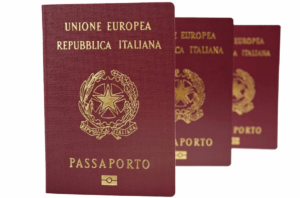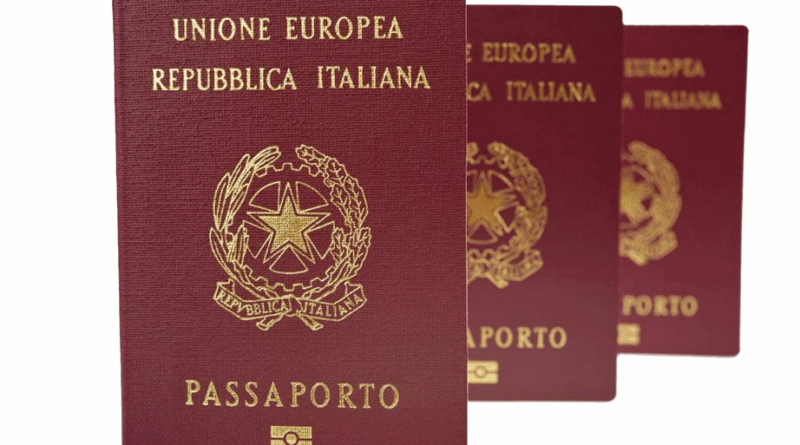Italian Citizenship for Descendants Born Abroad: Exploring Claims and Requirements

There’s an old proverb: when something seems too good to be true…it probably is! So let’s face it…every time someone comes to your house expecting some gift, beware they may bring you a few things for free (think Christmas presents!). And let them come home…! Legal requirements for recognising Italian citizenship claims by individuals born abroad but never registered with an Italian consular agency vary considerably according to individual circumstances, as well as on whether any treaties exist between Italy and various states. Claimants born in Great Britain, the US or Argentina would likely receive different answers to some of their queries regarding this procedure from Italian consular officers in each respective country. At our intention is to present an overview of the procedures involved and specifically genealogical requirements that arise for claimants born outside Italy and resident elsewhere. For our purposes we shall focus on births under normal circumstances instead of adoption issues.
Italian citizenship is determined primarily by lineage rather than geography (i.e. birth in Italy or naturalization). An Italian bloodline does not by itself qualify a person to claim Italian citizenship; one may only become one by having parents who were both Italian nationals at birth. Citizenship can be passed from mother or father, or both parents to their offspring; however, an Italian citizenship claim must come from only one parent per generation. Legitimacy of birth is not necessary if citizenship is claimed through one’s mother; however, this requirement usually applies when applying through one or both parents of an Italian-born child born outside Italy. Furthermore, identification must be established of those through whom citizenship is being claimed. Christina Clark may wish to claim Italian citizenship through her father, born in Italy under the name Giuseppe Calarco; however, her birth registration lists him as Joseph Clark; it would be necessary for her to convince the Italian consular authorities that these individuals are one and the same person by producing proof (such as legal documentation authorizing a change of name) in addition to regular requirements pertaining to residency requirements of his/her descendants wishing to claim Italian citizenship. Note that when families have resided outside of Italy for several generations, their last known Italian ancestor may have been born over one hundred years ago. Prior to 1860 he might have been a citizen of one of the nations that eventually formed into what we know as Italy today (Kingdom of Sardinia or Two Sicilies); these nations ultimately gave rise to Kingdom of Italy (later Italian Republic).
Birth, marriage and citizenship documents for each ancestral generation are of vital significance in making claims against it; any renunciations of Italian citizenship could affect this claim negatively (please see illustration of genealogy on reverse side). Giuseppe Rosso was born in Italy in 1895 and immigrated to America in 1925. Two years later he married German citizen Karen Volker of Philadelphia in 1927; this union resulted in their son John being born that same year. By 1932 Giuseppe had officially shed his Italian citizenship and adopted American citizenship. Karen becomes a United States citizen; John, however, had already become one due to being born in the U.S. (geography being the primary determining factor of citizenship) but also holds Italian citizenship due to his mother being Italian-born. As an infant, John could not renounce his Italian nationality on his own or through his father; thus remaining an Italian citizen until he decides to do so legally in later years. John and Carl welcomed another child together into their lives in 1934. Carl does not hold Italian citizenship since his mother no longer was one. John passed this right onto Carl but since Carl does not possess citizenship rights himself it can no longer be passed down through lineage. John and his children can only exercise their rights as Italian citizens if they have been recognized as such by the Italian Republic. If Johni birth or citizenship was never registered with an Italian consulate, his children must demonstrate his status (and therefore their own fatheris) as Italian citizen in order to exercise these rights.
Attaining these rights outside Italy typically begins with filing a petition for a certificate of citizenship (certificato di cittadinanza), usually as a requirement of receiving an Italian passport.
Which documents will I require for my claim? You will be required to present documents which show parentage; at minimum this includes birth and marriage certificates of your foreign-born ancestors as well as your Italian ancestors. Your Italian ancestry might connect back to either your father, grandfather, or great grandfather. Most countries require proof of the date of naturalization for any ancestor who renounced his/her Italian nationality. (For example, in the US an act of naturalization can be obtained through the local court in which your ancestor pledged allegiance, while documents certifying their status as foreign-born do not need to be obtained through Immigration and Naturalization Service.) All documents should be appropriately sealed. Depending on their origin, some nations outside of Europe require you to obtain an apostille certification as part of their naturalization procedure. Non-Italian documents generally must be translated officially for a fee by an Italian consular officer or authorized agent, while in Europe multilingual vital statistics certificates often make this unnecessary. A simple family tree showing descent lines as well as supporting documentation should accompany these items.
How much will this procedure cost? This depends on various factors, including the number of generations involved and supporting documents (with translations, certificates and fees as required). At minimum, such an endeavor will likely run into hundreds of dollars or pounds.
This guide does not offer legal advice; for specific inquiries about Italian laws in your locality or an attorney qualified to represent clients in such matters. Normally legal consultation will not be necessary, although document searches in Italy may necessitate professional genealogist services.
Though most governments do not prohibit dual nationality for its own citizens, certain legal conditions must be taken into account and those seeking Italian citizenship who were born overseas should consult the appropriate government agency regarding any inquiries into this matter.
